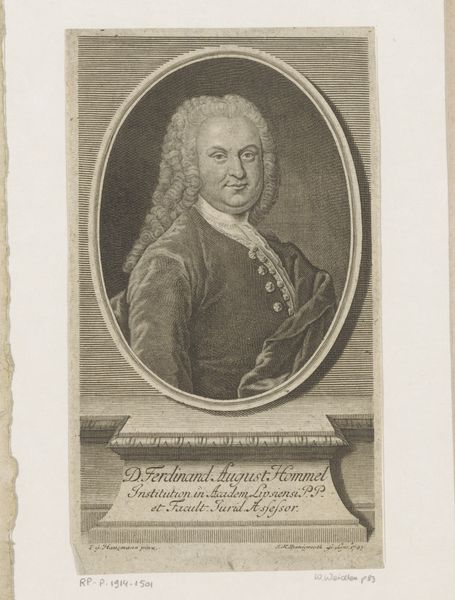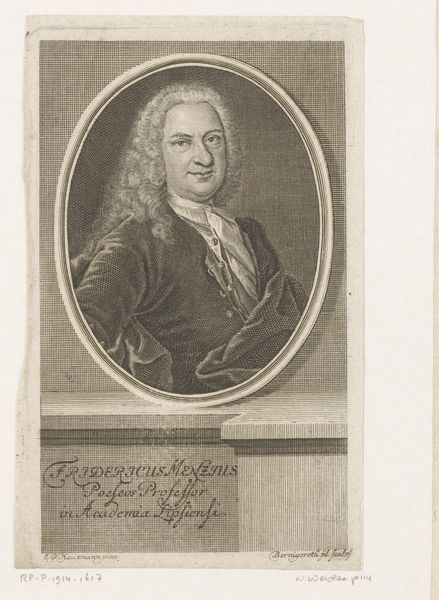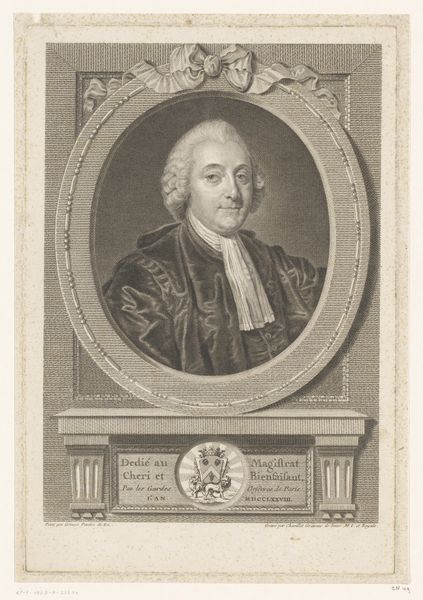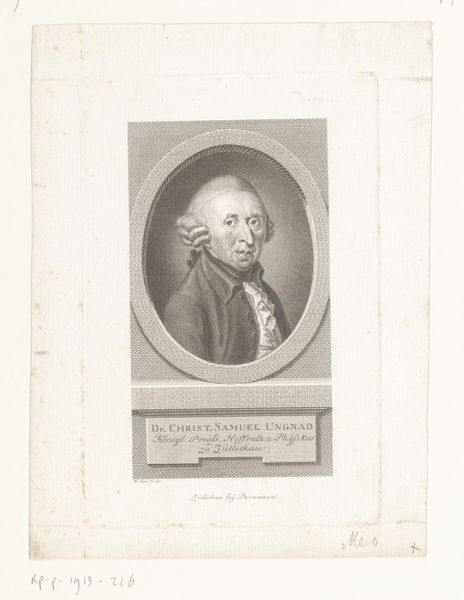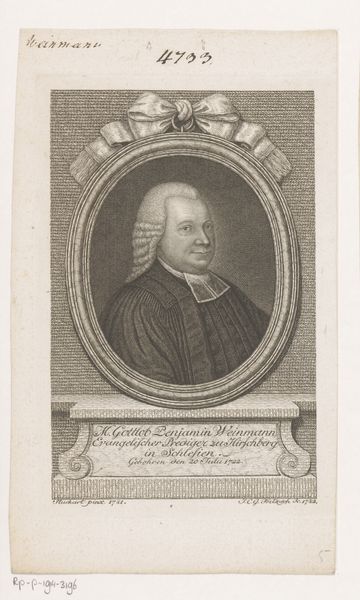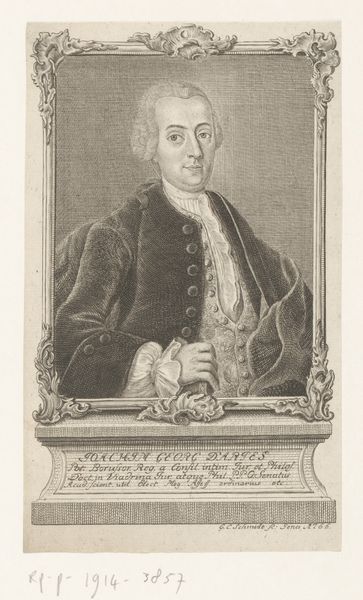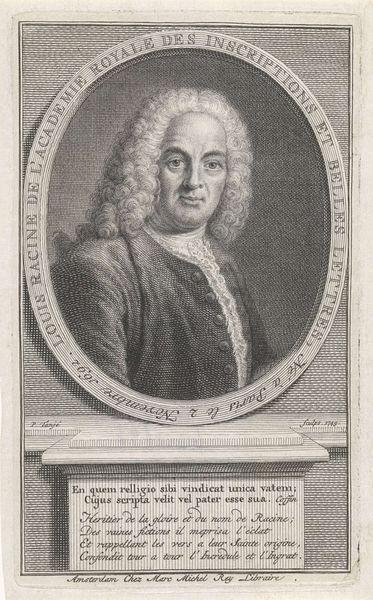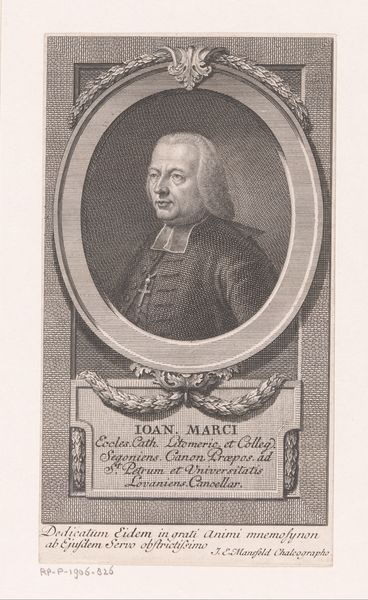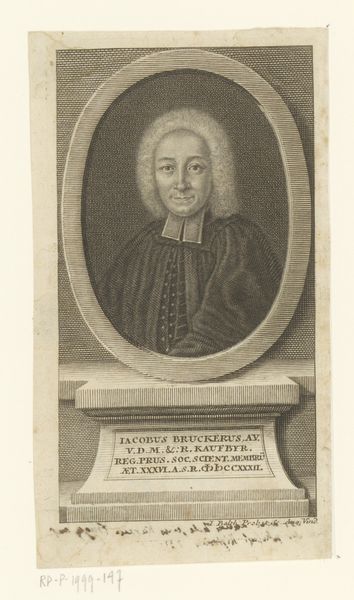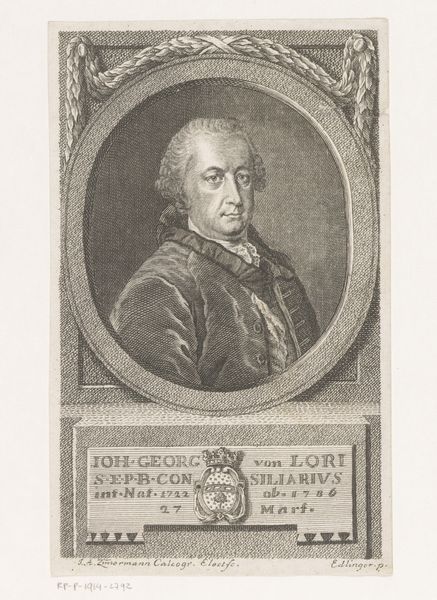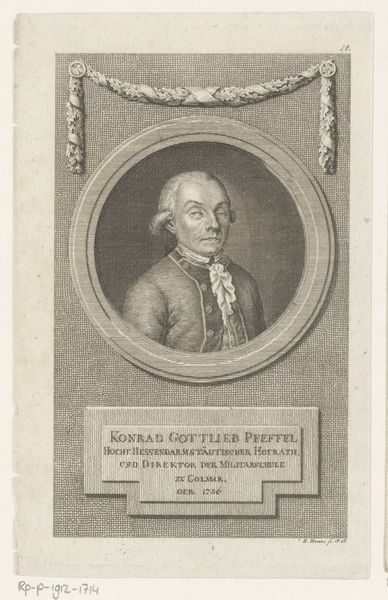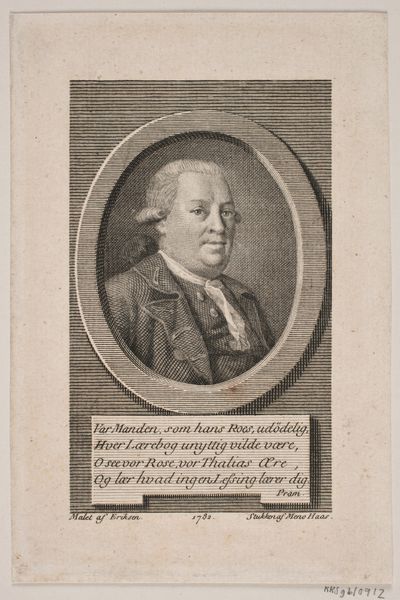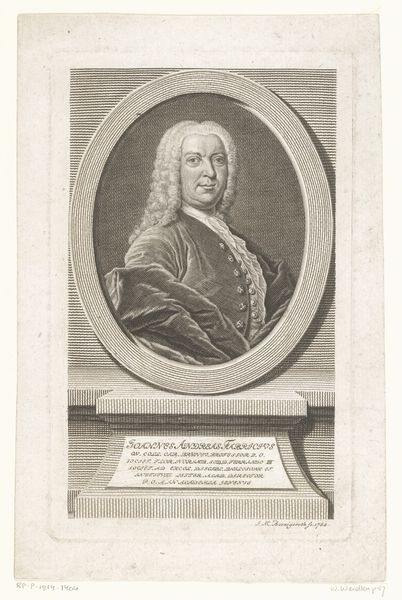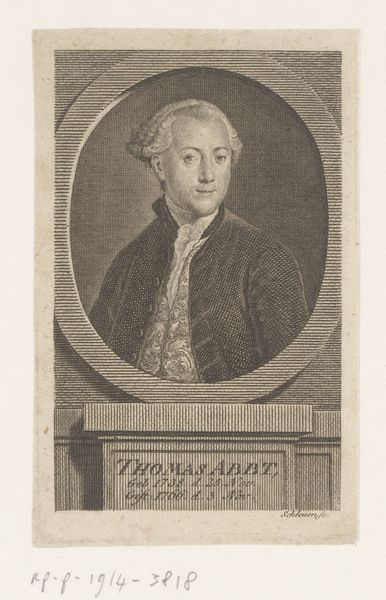
drawing, paper, engraving
#
portrait
#
drawing
#
neoclacissism
#
paper
#
engraving
Dimensions: height 172 mm, width 105 mm
Copyright: Rijks Museum: Open Domain
This portrait of Hermann Andreas Pistorius was made by Eberhard Siegfried Henne, who lived from 1759 to 1828. The image is an engraving, made by cutting lines into a metal plate, inking it, and pressing it onto paper. Engraving was a highly skilled craft, demanding years of training. The fine lines you see here, especially in Pistorius's face and clothing, required precise control of the burin, the engraving tool. The density of these lines creates the illusion of shading and form. Consider the social context: engraving allowed for the relatively cheap reproduction of images, making portraits like this accessible to a wider audience than painted portraits. It was a technology tied to the rise of a merchant class, for whom these kinds of likenesses had great value. The labor invested in this image and the way that it was distributed reflect a changing social landscape. By considering the materials and methods used to create it, we can understand the value of craft and its wider implications for the development of art and society.
Comments
No comments
Be the first to comment and join the conversation on the ultimate creative platform.
